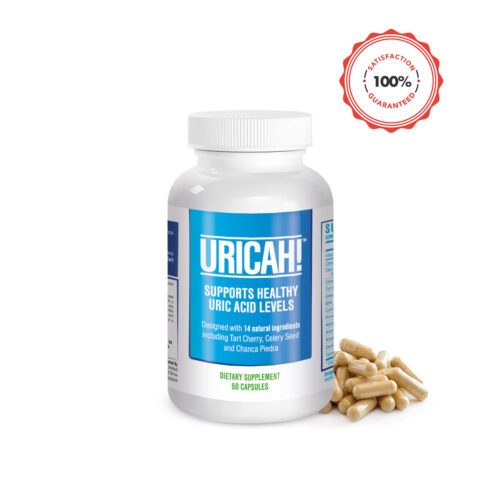Fruit is often considered a healthy choice—but if you’re managing gout, it’s natural to wonder which fruits help and which might hurt. While fruit can be a rich source of fibre, antioxidants, and hydration, not all fruits are equally beneficial when it comes to uric acid control.
Can Fruit Trigger Gout?
Unlike meats and seafood, fruit is generally low in purines, making it unlikely to directly increase uric acid. However, certain fruits are high in natural sugars, particularly fructose. High fructose intake has been linked to increased uric acid production in the liver, so it’s important to be mindful of fruit types and serving sizes.
Fruits That May Help with Gout
Some fruits do more than just avoid triggering gout—they actively support uric acid balance and joint health:
- Cherries: Perhaps the most researched fruit for gout. Studies suggest cherries may reduce the risk of gout flare-ups by lowering uric acid and inflammation.
- Berries: Strawberries, blueberries, and raspberries are packed with antioxidants and low in sugar, making them a smart addition to a gout-friendly diet.
- Citrus fruits: Oranges, lemons, and limes provide vitamin C, which may help reduce uric acid levels when consumed regularly.
- Apples and pears: Low in purines and high in fibre, they’re good everyday options—just watch portion sizes to avoid too much sugar.
- Bananas: A mild, low-purine fruit that’s easy to digest and hydrating.
Fruits to Eat in Moderation
These fruits aren’t harmful, but due to their higher fructose content, they’re best enjoyed in smaller amounts:
- Grapes
- Mangoes
- Pineapple
- Watermelon
- Lychees
Stick to fresh, whole fruit rather than juices, which concentrate sugars and remove fibre. A handful or one small piece is typically a safe serving.
Fruits to Limit or Avoid
Fruit juices and dried fruits can contribute to gout if consumed often:
- Fruit juice: Especially orange or apple juice, which delivers high fructose with little fibre.
- Dried fruit: Concentrated sugar in a small package. A few pieces occasionally is fine, but regular snacking adds up quickly.
- Sweetened canned fruit: Often packed in syrup and significantly higher in sugar than fresh fruit.
How to Include Fruit in a Gout-Friendly Diet
- Choose fresh, whole fruits over processed versions
- Combine fruit with protein or fibre-rich foods to slow sugar absorption
- Aim for 2 servings of low-sugar fruit per day
- Stay hydrated—fruit with high water content, like oranges and berries, supports fluid balance
Natural Support with Uricah
For those seeking additional support in managing uric acid, Uricah offers a dietary supplement that complements a balanced lifestyle. With 14 carefully selected ingredients known to assist with joint comfort and uric acid metabolism, Uricah fits seamlessly into a routine that includes smart eating habits—like choosing the right fruits for your body.
ACCELERATE DIET CHANGES
Our 14 potent, natural ingredients support the body in lowering uric acid levels, alleviating the excruciating pain and discomfort caused by gout.
URICAH™ features powerful ingredients used over thousands of years to fight gout such as Tart Cherry, Celery Seed and Chanca Piedra.
Get back on your feet and live pain free with URICAH™.
LEARN MORE

